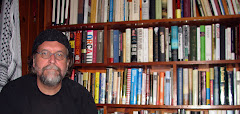
The older I get, the simpler things become, and the harder they are to achieve.
We humans like to think of ourselves in a fine light, filled with goodness, high motives - think of ourselves as people we would like to have as friends. But the truth is far messier. For every ray of singular clarity and goodness, we possess multiple shadows of duplicity where we deny our willingness to sacrifice truth, and one another, for the sake of keeping our iconic image of ourselves, intact, and well placed on our inner shelf of religious devotion.
Marriage is that way. While we somewhat acknowledge that it takes two people, and their combined efforts, to construct all that is good in a marriage, we deny, regularly, that it takes two people, together, to deconstruct a relationship and bring about its demise. When a relationship begins to evolve to an end, at least one, if not both parties, refuse to relinquish their hold on self justification, choosing the role of martyr, over active player in the marriage.
'She did this'
'He did this'
'It is her fault'
'It is his fault'
'She will pay'
'He will pay'
Was it Mohandas Gandhi who said:
'An eye for an eye
and the whole world ends up blind'
I think so ...
We idolize the institution of marriage in this culture, insist, through religious tradition and cultural mythology, that the only marriage that is successful is one that lasts until one of the parties is dead.
Never mind the absence of passion, respect, trust, honesty on a day to day basis.
Sadly, in the end, we most often, blindly resolve the dissolution of our marriages by demonizing one party, and venerating the other. Persecutor and victim. And by clinging to these rigid understandings, children, the result of the best love between two people, are harmed, and we destroy the possibility of powerful love evolving into new forms of friendship and companionship, creating a sad and pathetic hell for all involved.
Is there a way out of these societal prescribed automated responses?
Maybe.
Maybe if we choose to see ourselves like the photo here.
Light illuminating the shadow that lives and breathes in each of us.
Embracing that light and shadow.
No victims, no bad guys.
Just well meaning humans trying to love.
Then maybe, just maybe,
we can learn to preserve love
and help it to be born anew.
Embracing the human
Leaving the inhuman behind.
zjm


















